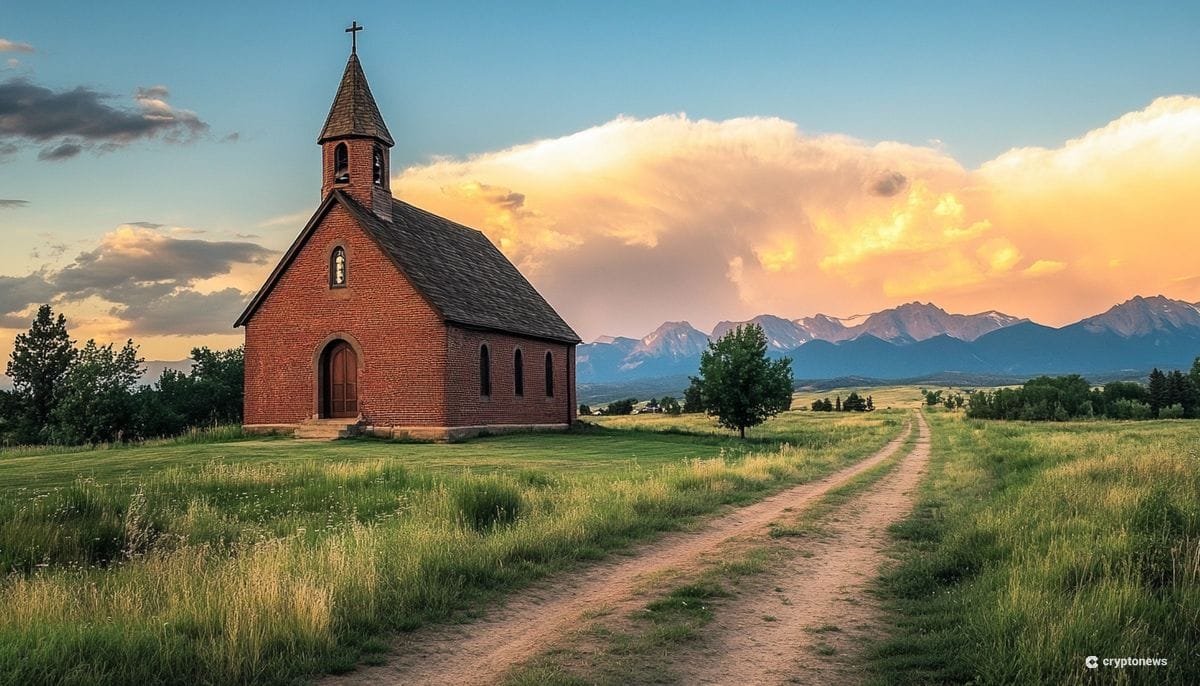The Colorado House of Prayer, a network of affiliated church groups, has taken a groundbreaking step by leveraging blockchain technology to tokenize their main chapel – the historic “Old Stone Church.” The goal of this initiative is to raise $2.5 million to secure ownership of the 11,457-square-foot building. Spearheaded by Pastor Blake Bush, who claims that the idea to tokenize the building was divinely inspired, this project is seen as a mission to reclaim what he refers to as “God’s house.”
The Old Stone Church, known for its distinctive stone exterior, has served as a place of worship for Bush’s congregation and other affiliated church groups. The current owner of the building, a local businessperson who also owns a car dealership, purchased the property in 2022 for $2.2 million. In order to acquire the building for $2.5 million, the Colorado House of Prayer has created the “Stone Coin,” a digital asset tied to a real estate token developed by REtokens and operating on the Polymesh private blockchain. This innovative approach allows for the division of the building into digital shares that can be purchased by investors.
The success of this tokenization initiative relies on attracting positive investments and the increasing value of the tokens. Currently, the project has raised approximately half of its target amount and is actively seeking additional investors to reach its goal. Despite the potential risk of outsiders gaining control of tokens, including non-parishioners and possibly unwelcome groups, Pastor Bush remains optimistic. The group plans to open token sales to individuals outside the congregation, emphasizing their mission to spread the message of Jesus.
The global market for tokenized illiquid assets is projected to reach up to $16 trillion by 2030, according to a report by the Global Financial Markets Association and Boston Consulting Group. Major companies like Goldman Sachs are recognizing this potential and making significant moves in the tokenization space. Some protocols, such as digital carbon market platforms like Toucan and KlimaDAO, as well as real estate tokenization protocol Propy, have seen substantial user growth. Both public and private blockchains are incorporating various assets, expanding the reach and application of tokenization technology.
In conclusion, the Colorado House of Prayer’s initiative to tokenize their historic chapel using blockchain technology represents a significant milestone in real estate tokenization. The project, spearheaded by Pastor Blake Bush, aims to raise $2.5 million through the sale of digital shares in the building. Despite potential risks and challenges, such as the involvement of external investors and the value of the tokens, the group remains dedicated to their mission. With the global market for tokenized assets predicted to grow exponentially by 2030, this initiative could pave the way for more real estate tokenization projects in the future.










